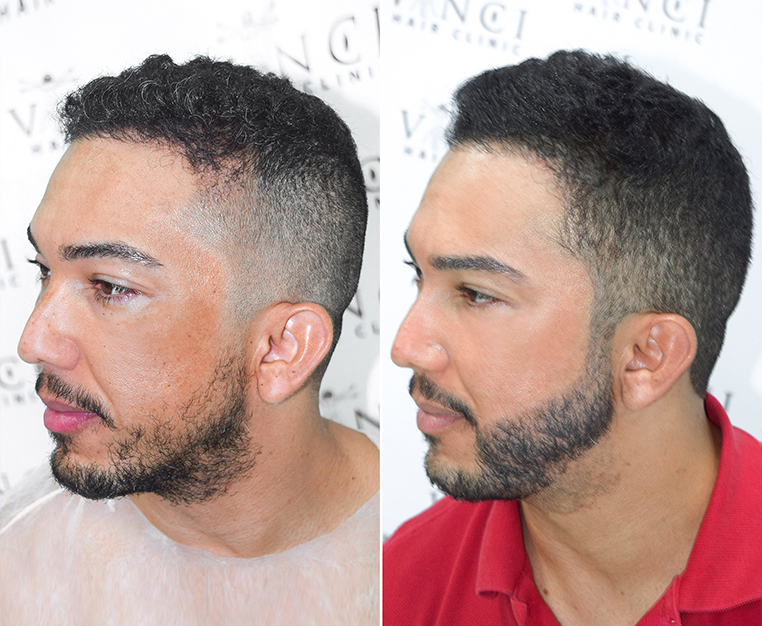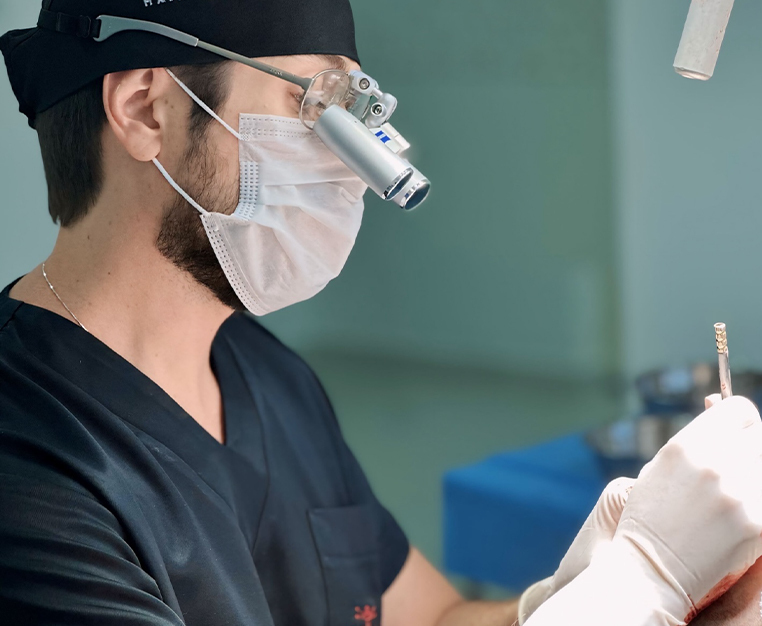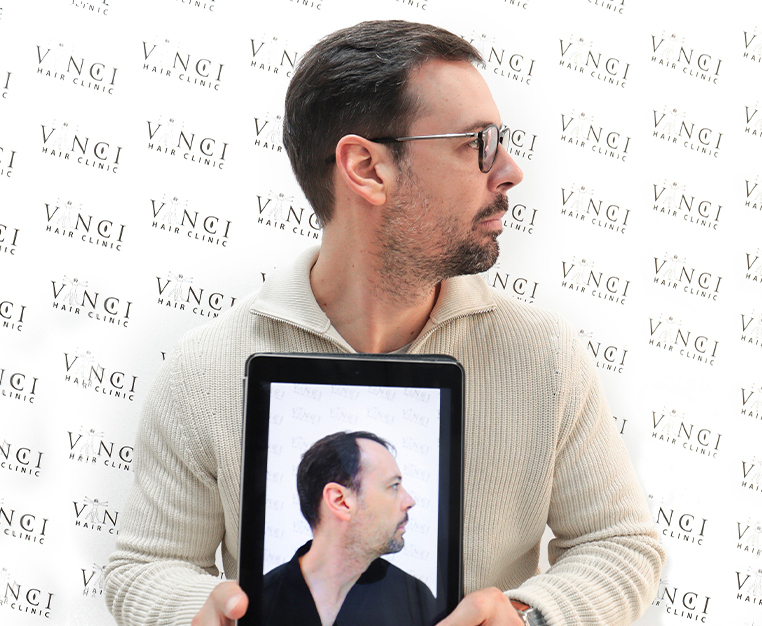Hormonal imbalances can lead to hair loss in both men and women. Some men manage to waltz through life without ever experiencing that kind of imbalance. For women, however, that’s unlikely ever to be the case. That’s because there are two times in a woman’s life when her hormones are likely to be seriously out of kilter, during pregnancy and around menopause.
Not all women experience hair loss during these life events, but the odds of it happening are much higher than at other times. Hair thinning in menopause is due to a drop in the female sex hormone oestrogen, something that can be tackled by hormone replacement therapy. But what’s going on during pregnancy? Why do women shed hair at this time, and what can be done about it?
What Causes Hair Loss During Pregnancy?
The normal hair loss and regrowth cycle means that most of us shed between fifty and one hundred hairs every day. During pregnancy, many women notice that this rate of loss slows considerably. This can result in their hair looking thicker and healthier than it usually does. The reason for this is the rise in oestrogen levels a woman experiences in pregnancy.
A few women, however, may experience a greater degree of hair loss while they are pregnant. This can come about because of the stress induced by the hormonal imbalance in the early months of pregnancy. Stress puts more hair into the resting phase of the growth cycle, a move that can see hair loss rise to about three hundred hairs every day.
Post-Partum Hair Loss
Most women report a greater amount of hair shedding after they have given birth. This may start between two and four months after the baby arrives and may continue for several months more. Again, this is a change linked to the amount of oestrogen in the body. As this returns to normal pre-pregnancy levels, so too does the hair loss and regrowth cycle. Hair that was retained during pregnancy now starts to fall. Women experience this as a major hair loss episode, even though it is simply their body returning to its usual pre-pregnancy hormone and hair loss patterns.
This post-partum hair loss only becomes a matter of concern if the hair hasn’t grown back after about one year. If that’s the case, a medical check-up is advisable to rule out thyroid issues or an iron deficiency. It’s also possible that an underlying hair problem like androgenetic alopecia or alopecia areata is hiding under the cover of pregnancy, so talk to a hair professional about these.
Treatment for Hair Loss in Pregnancy
There is no specific treatment for hair loss in pregnancy for the simple reason that it doesn’t require any treatment; in most cases, the issue will resolve itself within twelve months. That’s not to say there isn’t anything you can do to prevent or alleviate the symptoms. Here are a few steps you can take:
- Think about what you’re eating. A healthy diet is vital during pregnancy for many reasons, your hair being just one of those. A balanced diet that includes plenty of fish, fruit, whole grains and vegetables should ensure that your body gets the nutrients it needs to regulate your hormones and keep your hair in a healthy condition. Supplements can help, too. Ginkgo biloba and biotin (Vitamin B7) will support the growth of strong, healthy hair when taken in conjunction with a nutritious diet.
- Take it easy on the heat styling tools. When your hair is under pressure, as it is during and after pregnancy, it’s best to avoid things that might cause more damage. Excess heat can cause dry and brittle hair at the best of times, so you should reduce your use of blow-dryers, curling irons and straighteners. At the very least, lower the heat setting.
- Avoid tight hairstyles during and after pregnancy. Pulling your hair up into tight braids, buns and ponytails can put stress on hair that is already vulnerable. Over a prolonged period, these styles can cause traction alopecia. Do yourself and your hair a favour and adopt a looser hairstyle until you are clear of the whole pregnancy hair loss period.
- Adapt your haircare routine to make it less damaging to your strands. That means washing your hair gently using a volumising shampoo. It means keeping your roots moisturised and hydrated. It means using a wide-toothed comb to avoid pulling and tearing at your tangled strands.
Conclusion
Hair loss in pregnancy, as we’ve seen, is not something for women to be overly concerned about. While it’s always distressing to see your hair fall, the fact that it’s a temporary phenomenon should be of some comfort to those experiencing it. Given a few months, your hair will grow back.
If you do not see any regrowth after about twelve months, it might be time to seek the advice of a medical practitioner or a hair professional. Vinci Hair Clinic is here if you need us. We offer a free, no-obligation consultation to all new clients, so you can get your questions answered without committing to anything. Get in touch and book your appointment today!





